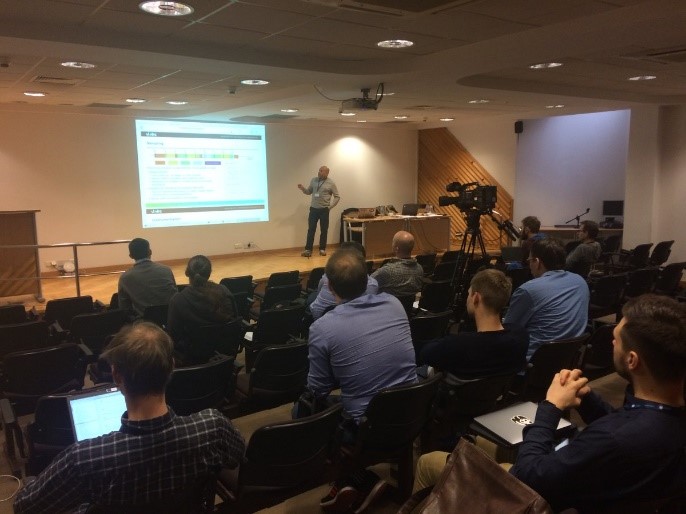This year, the Supercomputing Frontiers 2018 conference was held in Warsaw, Poland for the first time, after previously being held in Singapore. The conference format was 3 days of presentations covering a wide range of topics in HPC and the fourth day hosted workshops. Presenters travelled from the US, Europe and Russia. The hosting of the conference in Poland shows how the country has advanced in utilising HPC for scientific, academic and industrial research and shows its HPC ambitions, and its willingness to share and collaborate with others. The first three days covered topics from security for HPC, using HPC for bioinformatics, computational cosmology, advances in HPC hardware, and novel technologies such as quantum computing, as well as many other interesting topics.

POP hosted an afternoon workshop on parallel performance analysis.
- Jon Gibson of NAG presented an introduction to performance profiling and why profiling is important in identifying performance issues. He introduced the POP profiling methodology that has been used throughout the project and ended with case studies of applications that have benefited from the POP service.
- Wadud Miah of NAG then presented the Cube profiling tool from the Scalasca toolset and the two different methods of profiling, namely sampling and instrumentation. Jon then presented the Paraver profiling tool which included a profile of an actual application that was analysed by POP and showing how to identify performance issues.
- The last presentation covered profiling parallel file I/O using the Darshan tool which included a live demo, which was followed by an explanation of how to identify performance issues from the Darshan report. The presentation ended with programming hints and tips on efficient file I/O in MPI applications.
- The workshop included hands-on tutorials for Cube and Paraver and for Darshan so attendees can get started on a simple application (NAS PB) and apply the knowledge to their production applications.
The workshop ended in lively discussions on performance profiling. There were questions on the advantages and disadvantages of different profiling tools, performance profiling models and efficient parallel I/O. Jon also discussed the Paraver Dimemas tool to view how the application would perform on a perfect network. An attendee from a parallel file system vendor was particularly keen to discuss the file I/O programming hints and tips as his company were keen to expand into the HPC market. Overall, the workshop was well received and knowledge on performance profiling was expanded to a country with high ambitions in HPC.
Additional learning material can also be found https://pop-coe.eu/further-information/learning-material.
